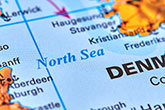Africa’s 2015 upstream events
Published by Joseph Green,
Editor
Oilfield Technology,
Wood Mackenzie's Sub Saharan and North African Upstream research teams have assessed the most significant events impacting the continent's oil and gas sector, the collapse of global oil prices and the implications for the high cost African upstream industry, identifying the key areas to watch in 2015.
Gail Anderson, Principal Analyst for Sub Sahara Africa Upstream research at Wood Mackenzie says: "Africa is a global hotspot for capital-intensive deepwater and LNG supply projects, making it particularly exposed to the type of discretionary spending cutbacks the industry currently faces. The collapse of oil prices has significant implications for the African upstream industry and the big question will be whether a number of projects will achieve final investment decision (FID) this year or not. Shareholder demand for 'value over volume' has driven E&P companies to make cuts to exploration and discretionary development spending to protect dividends and although this behaviour was well established before the price crash – it is now forced, rather than strategic."
Wood Mackenzie's latest upstream analysis highlights some of key upstream activity to look out for in Africa this year.
Capital cut backs – Deepwater development costs in Africa are typically US$25-30 per bbl and among the highest globally. This, for many companies, makes the need to defer expenditure by delaying FID and take advantage of falling costs absolutely imperative. Day rates for offshore rigs in the region have fallen 30% in recent months, but other oil services are yet to respond. In more established areas such as Nigeria and Angola, prices will be less responsive to falling demand. Wood Mackenzie expects to see development costs falling by around 15% in 2015 – not as far or fast as other regions. Project economics are also influenced by prices in the long term and in the current environment this is highly uncertain. A US$5-10 lower long-term price could be the difference between a project being economically viable or not.
M&A is on the way – Wood Mackenzie predicts forced sales of assets across Africa this year will drive an increase in activity compared to late 2014, but caution the pool of possible buyers could be limited. Asian NOCs could well take advantage of lower market values, while cash-rich Middle Eastern outfits, including sovereign wealth funds, may also emerge as serious players in Africa. Due to the down-turn, opportunities will abound for larger, financially-stable explorers to negotiate favourable farm-in deals, and cheap acreage. Many explorers have commitment wells in 2015, and those that are financially stretched will farm-down to reduce risk and ease the financial burden. We also expect Majors, such as ExxonMobil and Shell, to secure strategic positions across East African LNG projects.
E&A spend down, but bigger explorers could benefit – Wood Mackenzie predicts a 30% reduction in African E&A spend compared to 2014, as expenditure is diverted from high-risk, high-cost wildcats, to appraising discoveries, or proving up additional resources near proposed projects to deliver higher returns to shareholders. Exploration will continue in the deepwater Kwanza basin offshore Angola, with some operators such as BP still planning to drill. After a disappointing year, 2015 should provide more clarity on where the pre-salt fairways extends, with dry holes and relinquishments now surrounding some of the original discoveries. With frontier exploration being scaled back elsewhere, deepwater Nigeria - a proven world-class basin with significant undiscovered reserves - could reclaim attention.
Bid round delays, but cheaper acreage available - A number of bidding rounds have been reported, but until there is more appetite for exploration, Wood Mackenzie expects some will be delayed. Planned rounds in Angola, Kenya and Tanzania may be deferred, while the deadline for 15 blocks in Mozambique has been extended until the end of April. We expect bid rounds in Egypt and Algeria to proceed later in 2015, and offshore blocks in the Algerian sector of the Mediterranean could be offered for the first time. The improving situation in Somalia is worth watching, with both Federal and Somaliland administrations possibly offering acreage later in the year. Madagascar is expected to offer up to 50 offshore blocks in 2015. For rounds that do progress in a somewhat challenging environment, less competition should mean lower entry costs and required spend commitments.
Slow progress for unconventional development - Algeria’s huge shale gas potential will remain in focus this year, especially in the run up to the bid round, but progress towards a commercial development will be limited and production remains a long way off as more pilot holes and appraisal wells are drilled. In Egypt, Shell and Apache are set to begin to appraise tight gas resources within the North East Abu Gharadig block, having negotiated the country’s first unconventional gas agreement at the end of 2014. In South Africa, although improvements have been achieved in the legal and regulatory environment, Wood Mackenzie does not expect to see significant progress with unconventionals in 2015.
Adapted from press release by Joe Green
Read the article online at: https://www.oilfieldtechnology.com/exploration/30012015/wood-mackenzie-africa-upstream-events-319/
You might also like
EnerMech secures two-year cranes extension in North Sea
The current agreement, which began in August 2022, will now run until at least August 2027.


